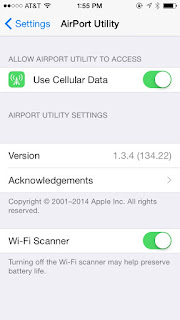Using OmniPeek To Learn About the iPhone X

One of my favorite things to do is teach Wi-Fi, and one of my favorite tools for teaching is Savvius OmniPeek . The good folks at Savvius were nice enough to provide OmniPeek for the Wi-Fi classes I oversee at Global Knowledge , and so I want to offer a taste of how OmniPeek can be used to learn about Wi-Fi device behavior, specifically with the iPhone X. Savvius OmniPeek is what I call a hardcore protocol analyzer. The "hardcore" adjective comes from the fact that OmniPeek encourages the user to view frame (aka "packet") traces. Non-hardcore protocol analyzers focus on providing statistics and graphs. I am a big fan of all types of protocol analyzers, but the beauty of OmniPeek is that it offers options for viewing statistics and graphs, while making its frame traces simple to navigate. One of the things I like using OmniPeek for when teaching is illustrating the different ways that Wi-Fi devices and APs use the 802.11 standard. An example is wh...




